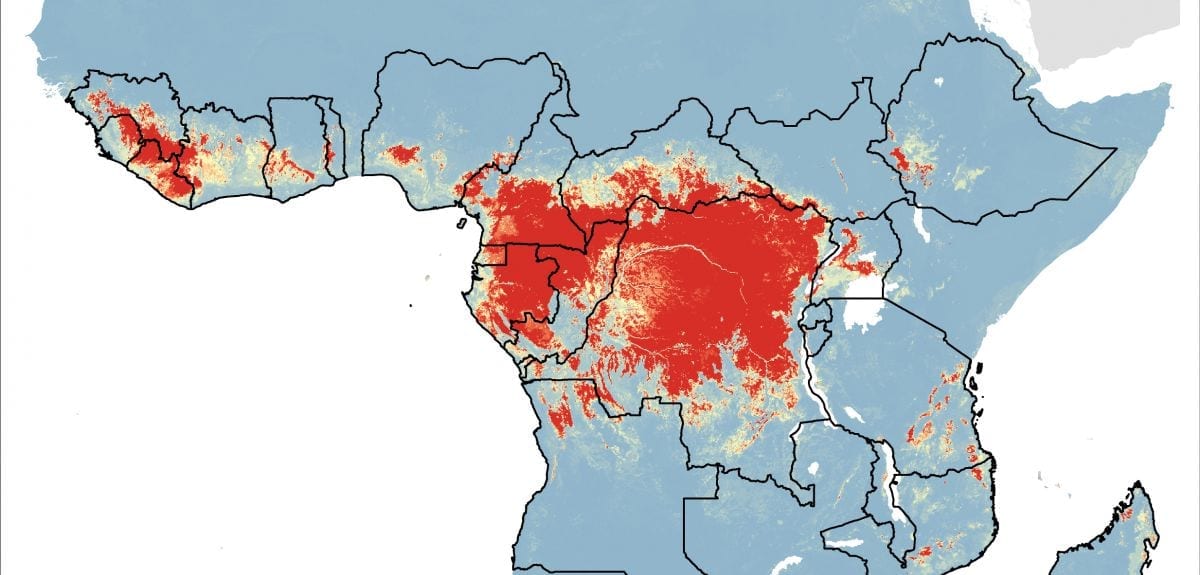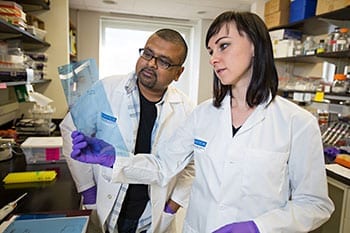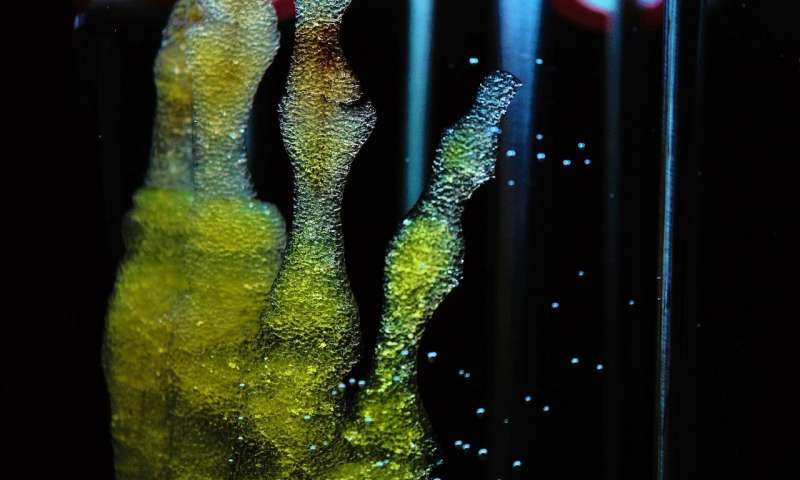
A clinical trial conducted in the midst of an Ebola epidemic in the Democratic Republic of Congo (DRC) has identified two new drugs that can dramatically cut mortality from the disease, and both are being immediately offered to all patients in an effort to control the country’s worst ever outbreak.
The Pamoja Tulinde Maisha (“together save lives” in Swahili) trial began last November, in four towns stricken by the outbreak. It compared four potential treatments proposed by four different companies: ZMapp, remdesivir, mAb114, and REGN-EB3.
Preliminary data has convinced the trial’s monitoring board to stop the study and randomise all remaining patients to either mAb114 or REGN-EB3.1
Data from the first 499 patients showed that REGN-EB3 had met early stopping criteria, and mAb114 was not far behind. Among all patients who took the drugs, those treated with REGN-EB3 had a mortality rate of 29%, while those who got mAb-114 had a mortality rate of 34%.
Patients treated with ZMapp, the best known Ebola treatment candidate, which was used in the west African epidemic of 2014, had a 49% mortality rate. Those treated with the antiviral remdesivir had a 53% mortality rate.
More than 75% of those who received no treatment have died in the epidemic, which has killed nearly 1900 people out of 2831 confirmed cases.
Researchers believe they can improve outcomes further in patients who are reached early in the course of infection. Among such patients, mortality rates were 6% with REGN-EB3, 11% with mAb114, 24% with ZMapp, and 33% with remdesivir.
Both REGN-EB3 and mAb114, like ZMapp, are monoclonal antibodies, proteins that bind to other proteins on the outer shell of the Ebola virus, which it uses to attach itself to human cells.
Regeneron Pharmaceuticals made REGN-EB3, a cocktail of three such proteins, using antibodies from “humanised” mice infected with Ebola.
The US National Institute of Allergy and Infectious Diseases created mAb114 using antibodies isolated from the blood of a survivor of a 1995 outbreak in DRC. It will be developed by Ridgeback Therapeutics.
“From now on, we will no longer say that Ebola is incurable,” said Jean-Jacques Muyembe-Tamfum, director of the DRC’s Institut National de Recherche Biomédicale, which oversaw the trial. Full results are expected by early October and will appear in a peer reviewed journal soon thereafter.
Muyembe, who was part of the team that discovered the Ebola virus 43 years ago, and who in 1995 became the first doctor to harvest antibodies from survivors, told a press conference that the news of effective treatments would reinvigorate the campaign to end the current outbreak, which has struggled against deep local suspicion in a region plagued by insecurity.
“People think that if you enter a treatment centre, you’ll leave in a coffin,” said Muyembe. But with such high survival rates in the newly infected, he said, “We have a great message: a treatment centre is a place where you can recover and that you leave alive.”
Learn more: Two Ebola treatments halve deaths in trial in DRC outbreak
The Latest on: Ebola
[google_news title=”” keyword=”Ebola” num_posts=”10″ blurb_length=”0″ show_thumb=”left”]
via Google News
The Latest on: Ebola
- Ebola's exponential growthon April 28, 2024 at 5:00 pm
The U.S. government’s Centers for Disease Control warned recently that we could have 1.4 million cases of Ebola by January. By Gwynne Dyer - Here are two good things about the Ebola virus. It is ...
- Improving public health communication in African epidemics: Lessons learned and future directionson April 26, 2024 at 10:20 am
Zika and other public health emergencies, effective communication of public health messages is crucial to control the spread of disease, maintain public trust, and encourage compliance with health ...
- Ebola Outbreak in West Africa, 2013-2014on April 24, 2024 at 5:00 pm
The Ebola virus disease outbreak now ravaging parts of West Africa is the largest on record. In fact, West Africa has seen more cases of the disease in 2014 than have been seen in all other ...
- This Kenya Cave, Believed To Be Source Of Ebola, Could Cause Next Pandemic: WHO Issues Warning About Marburg Virus Outbreakon April 22, 2024 at 10:29 pm
The world's deadliest cave Kitum, located in Mount Elgon National Park in Kenya, could cause the next pandemic. Read on to know more.
- Believed to be the source of Ebola, this Kenya cave could be ground zero for the next pandemicon April 22, 2024 at 6:54 pm
Located in Kenya's Mount Elgon National Park, the Kitum Cave was reportedly the origin point for the Ebola and Marburg viruses, of which the latter has been termed as 'epidemic-prone' by the World ...
- Joel Breman, Who Helped Stop an Ebola Outbreak in Africa, Dies at 87on April 22, 2024 at 4:11 pm
Part of a team flown in to fight the deadly virus in 1976, Dr. Breman also worked to stamp out tropical diseases like smallpox, malaria and Guinea worm.
- This Kenya Cave, Believed To Be Source Of Ebola, Could Cause Next Pandemicon April 22, 2024 at 9:11 am
The 600-foot-deep cave has been continuously dug and expanded by elephants, only to have disease-carrying bats make it their home.
- Retrospective genomic characterization of the 2020 Ebola outbreakon April 19, 2024 at 8:18 am
Epidemiology researchers are harnessing tools developed by the Johns Hopkins Applied Physics Laboratory (APL) in Laurel, Maryland, to untangle the origins of the 2020 Ebola virus disease outbreak in ...
- Remembering Joel Breman, Ebola pioneer and beloved global health mentoron April 12, 2024 at 1:50 pm
Pioneering disease investigator and beloved global health mentor Joel Breman died on April 6 at the age of 87. Breman was part of the team that investigated the first known Ebola outbreak in 1976.
- Unraveling Ebola’s Intricacies A New Pathway to Target Viral Replicationon March 18, 2024 at 12:39 am
I n the ongoing battle against infectious diseases, few adversaries loom as menacingly as the Ebola virus. Known for its swift and deadly outbreaks, Ebola has long posed a formidable challenge to ...
via Bing News










